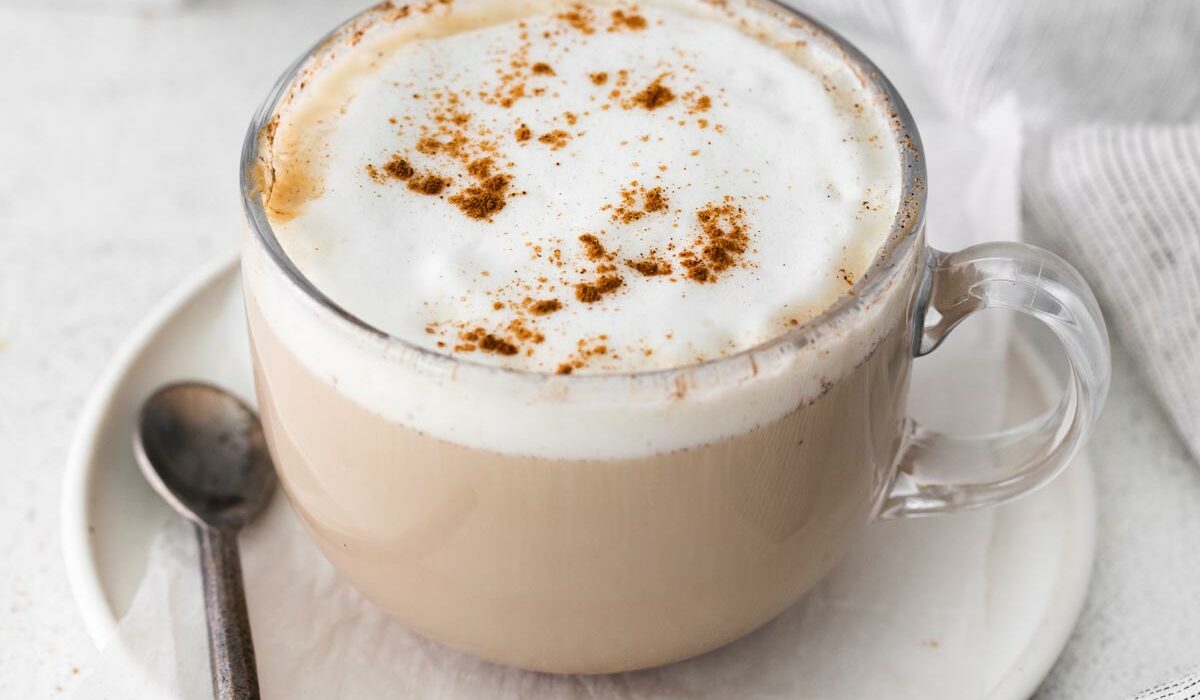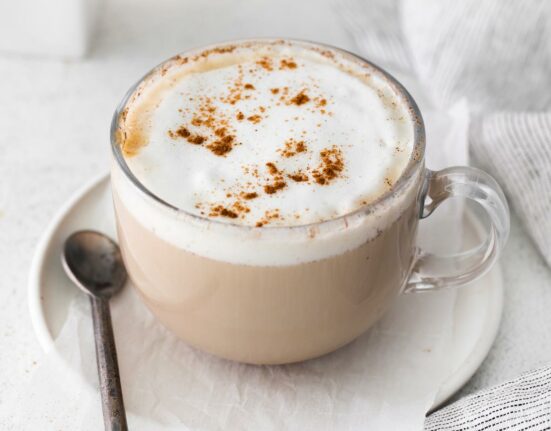French vanilla cappuccino, a delightful concoction that marries the robust flavor of coffee with the creamy sweetness of vanilla, has captured the hearts and palates of coffee lovers across the globe. This creamy beverage, which is a beloved variant of the traditional cappuccino, provides an exquisite experience that is both comforting and invigorating. But what exactly makes a classic French vanilla cappuccino stand out from its counterparts? Let us embark on a journey to explore its origins, preparation techniques, and nuanced flavors, enticing you to not only appreciate its essence but also to challenge your current beverage preferences.
Originating from Italy, the cappuccino is a harmonious blend of espresso, steamed milk, and milk foam. However, the introduction of vanilla into this classic beverage brings an innovative twist, elevating its flavor profile and appeal. The term “French vanilla” may evoke images of delicate pastries or gourmet desserts. In reality, it denotes the rich and custard-like flavor derived from the infusion of egg yolks, a technique adapted to enhance vanilla’s already aromatic essence. This fusion has led to the imbuement of the classic cappuccino with an opulent character that is both aromatic and sensuous.
Let us delve deeper into the fabulous world of the classic French vanilla cappuccino. What are the components that work in unison to create this delightful beverage? Understanding the individual elements will allow us to appreciate the aggregate effect achieved in each comforting cup.
Espresso: The Backbone of Flavor
The heart of any cappuccino lies in its espresso. This concentrated form of coffee provides a bold, original flavor that serves as the foundation for the drink. The preparation of a quality espresso involves finely grinding the coffee beans and forcing hot water through them under pressure. This extraction process results in a complex amalgamation of flavors, characterized by rich acidity and a distinct aroma. Consider the type of beans used; Arabica beans, for instance, deliver a sweeter taste when compared to the bitterness often attributed to Robusta beans.
In crafting a French vanilla cappuccino, the high-quality espresso should be complemented by the enchantingly sweet notes of vanilla. Whether utilizing vanilla syrup or natural vanilla extract, achieving an exquisite balance between the two is essential. It is worthwhile to experiment with various types of vanilla to determine which one resonates most with your palate. One could argue that the decadent qualities of Tahitian vanilla, with its fruity undertones, add a layer of complexity that enhances the overall experience.
Milk Froth: Creating Velvety Success
The next layer in the magnificent structure of a French vanilla cappuccino comes from the foamy milk. Texturing milk to attain a velvety consistency is an art in and of itself. The milk used in traditional cappuccinos is typically whole milk, but options abound, ranging from low-fat to plant-based. Each choice yields a different texture and flavor profile. When steam is introduced to the milk, it adds microbubbles, resulting in a denser froth, essential for achieving the classic cappuccino style.
Artful frothing requires technique and patience. As the milk heats and expands, the aim is to create a glossy, smooth surface that melds seamlessly with the espresso. For enthusiasts daring to elevate their coffee game, exploring various frothing methods—from the traditional steam wand to handheld frothers—can yield unique results. Observe how variations in frothing duration and angle can create distinct textures, enabling artisanal personalization in your own kitchen.
Aromatics: The Fragrant Undertone
Now that we have examined the backbone and body of our beloved cappuccino, we must not overlook the importance of aromatics. In the case of a French vanilla cappuccino, the predominant aroma derives from the vanilla itself, but additional flavorings can be introduced to create a symphony of scents that entice the senses. Consider the warming notes of cinnamon, nutmeg, or even a hint of citrus zest. One might find that introducing a complementary aromatic can significantly enhance the overall experience, enveloping the drinker in a comforting embrace reminiscent of cozy cafés in quaint European towns.
Beyond mere flavor enhancement, aromatic compounds also play a role in the psychological experience of drinking coffee. Research suggests that the scent of vanilla can evoke feelings of warmth and happiness. A thoughtful interplay of flavors and aromas, therefore, deepens one’s engagement with the beverage and transforms it into more than a simple drink—it becomes an experience, a moment of joy seized amidst the chaos of daily life.
Artistry in Presentation: The Final Flourish
No French vanilla cappuccino would be complete without visual appeal. The artistry involved in serving this drink can turn an ordinary beverage into an extraordinary one. This is most vividly expressed through the craft of latte art, wherein the skilled barista creates designs atop the cappuccino foam. From simple hearts to intricate rosettas, these embellishments are a playful challenge for any home enthusiast keen on mastering this craft themselves.
Equipped with an array of tools including a milk pitcher and thermometer, the novice barista can practice pouring techniques that result in eye-catching designs. Take care to use freshly frothed milk and work with both the speed and angle of your pour. The outcomes can be marvelously rewarding, deepening one’s appreciation for the intricate steps involved in the beverage’s creation.
The Experimentation Factor: Creating Your Signature
One of the most enjoyable aspects of mastering the classic French vanilla cappuccino is the opportunity for experimentation. Why not explore variations that cater to your individual preferences? Consider incorporating flavored syrups such as hazelnut or caramel for an alluring twist. Alternatively, for those seeking a more decadent allure, consider products like whipped cream or a touch of chocolate syrup to augment the flavor experience.
Furthermore, once you have initiated your pursuit of cappuccino mastery, consider hosting tastings among friends and family. This playful challenge of creating and sharing your personalized version of the French vanilla cappuccino encourages camaraderie and fosters discussion about diverse flavor perceptions. You may even discover hidden preferences within your circle that encourage further exploration and innovation in beverage creation.
As we encapsulate the journey through the classic French vanilla cappuccino, it is essential to acknowledge the complexity and artistry inherent in its creation. An exploration of its fundamental components—the robust espresso, delicately frothed milk, inviting aromas, and artistic presentation—demonstrates that even the most seemingly simple beverage may harbor depths of nuance and creativity. Moreover, the opportunity to personalize your concoction provides a delightful avenue for playful inquiry into the world of coffee. So why not take up this challenge? Embrace the exploration, and savor each moment spent creating your own version of a classic French vanilla cappuccino. Delight in not just the act of consumption but in the entire creative process that accompanies it.

